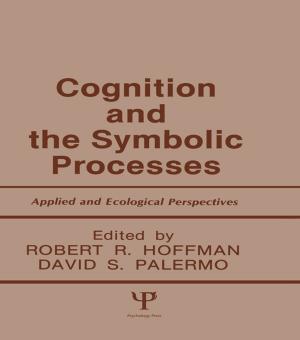Syntactic Carpentry
An Emergentist Approach to Syntax
Nonfiction, Reference & Language, Education & Teaching, Educational Theory, Bilingual Education, Teaching, Language Arts| Author: | William O'Grady | ISBN: | 9781135612726 |
| Publisher: | Taylor and Francis | Publication: | March 23, 2005 |
| Imprint: | Routledge | Language: | English |
| Author: | William O'Grady |
| ISBN: | 9781135612726 |
| Publisher: | Taylor and Francis |
| Publication: | March 23, 2005 |
| Imprint: | Routledge |
| Language: | English |
Syntactic Carpentry: An Emergentist Approach to Syntax presents a groundbreaking approach to the study of sentence formation. Building on the emergentist thesis that the structure and use of language is shaped by more basic, non-linguistic forces—rather than by an innate Universal Grammar—William O'Grady shows how the defining properties of various core syntactic phenomena (phrase structure, co-reference, control, agreement, contraction, and extraction) follow from the operation of a linear, efficiency-driven processor. This in turn leads to a compelling new view of sentence formation that subsumes syntactic theory into the theory of sentence processing, eliminating grammar in the traditional sense from the study of the language faculty.
With this text, O'Grady advances a growing body of literature on emergentist approaches to language, and situates this work in a broader picture that also includes attention to key issues in the study of language acquisition, psycholinguistics, and agrammaticism.
This book constitutes essential reading for anyone interested in syntax and its place in the larger enterprise of cognitive science.
Syntactic Carpentry: An Emergentist Approach to Syntax presents a groundbreaking approach to the study of sentence formation. Building on the emergentist thesis that the structure and use of language is shaped by more basic, non-linguistic forces—rather than by an innate Universal Grammar—William O'Grady shows how the defining properties of various core syntactic phenomena (phrase structure, co-reference, control, agreement, contraction, and extraction) follow from the operation of a linear, efficiency-driven processor. This in turn leads to a compelling new view of sentence formation that subsumes syntactic theory into the theory of sentence processing, eliminating grammar in the traditional sense from the study of the language faculty.
With this text, O'Grady advances a growing body of literature on emergentist approaches to language, and situates this work in a broader picture that also includes attention to key issues in the study of language acquisition, psycholinguistics, and agrammaticism.
This book constitutes essential reading for anyone interested in syntax and its place in the larger enterprise of cognitive science.















